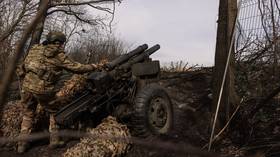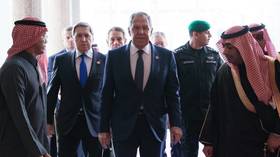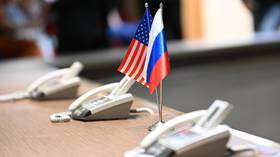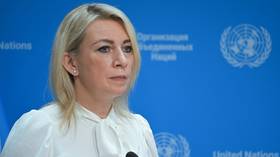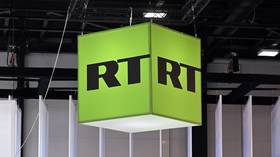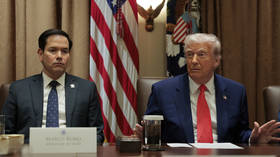Caspian nations discuss hydrocarbons and sea’s legal status
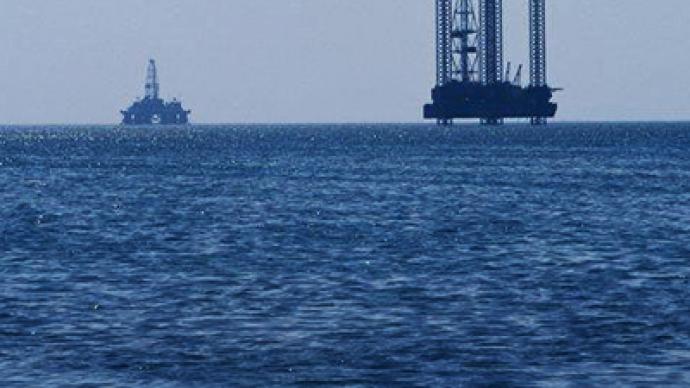
The legal status of the energy-rich Caspian Sea was in focus at a summit in Azerbaijan’s capital, Baku. Leaders of the “Caspian Five” discussed how to ensure the security of the area.
The Caspian Sea is often referred to as the natural marking point between Europe and Asia.It is extremely rich in natural resources – according to estimates about 18 billion tonnes of hydrocarbons are contained in its seabed, which is comparable with the deposits in the Persian Gulf.The sea’s biological resources are also rich – for instance, about 80 per cent of the world’s sturgeon catch comes from the Caspian Sea.During Soviet times, the sea was shared between the Soviet Union and Iran, but after the collapse of the USSR, the independent states that emerged – Kazakhstan, Azerbaijan and Turkmenistan – also wanted a piece of the pie.One of the main goals of the Caspian nations’ summit is to resolve the issue and divide the Caspian Sea between the five states – Russia, Iran, Azerbaijan, Kazakhstan and Turkmenistan.In recent years, Russia, Kazakhstan and Azerbaijan have found a compromise and reached agreements which say the seabed is to be divided into sectors, and the water mass is to be shared.The legal status of the Caspian Sea remains undecided, as each party is actually interested in leaving it that way, stated Kirill Koktysh, professor at Moscow State University of International Relations. “The final decision on the status of the Caspian Sea would create winners and losers. And so far, as the bargaining is going on, everybody has hopes that he could win more,” he explained.Koktysh assumed that the bargaining situation would last, but would not lead to any conflict as each country is interested in keeping “this region as potential resource tank for further trade,” while a conflict would bring the shares of the region down.Safety in the region is also a major issue on the summit’s table and a document is scheduled to be signed on co-operation in fighting terrorism, drugs and arms trafficking.
Iran
Another major highlight of the summit is the meeting between Presidents of Russia and Iran, which is the first meeting between the two leaders since Russia supported the latest set of UN sanctions against Iran, and also cancelled its shipment of S-300 missile defense systems to Tehran – a move strongly criticized by Iranian authorities.“Even if you agree with those sanctions, it should not have had any effect on Russia’s obligations to Iran, because we signed the contract before the sanctions were imposed,” said Ramin Mehmanparast, Iranian Foreign Ministry spokesman. “Furthermore, the sanctions don’t apply to defensive weapons – the weapons you use to protect your country. That’s why Russia should have honored the contractual obligations and delivered the S-300 systems to Iran.”Dmitry Medvedev and Mahmoud Ahmadinejad have not been avoiding uneasy issues, Russian presidential aide Sergey Prikhodko told reporters after the presidents’ meeting.“This was a very important meeting and the character of the conversation was absolutely open,” Prikhodko said.Commenting on the Russian-Iranian relations, Koktysh noted that Russia might resume the dialog with Iran on the shipment of S-300 missile system, as the US has postponed signing the START Treaty, which seemed a proper reply to Russia’s support of the UN sanctions against Iran.
Vladimir Sotnikov of the Moscow-based Institute of World Economy and International relations, on the other hand, is optimistic about the entire situation over Iran. He refers to the recent reaction from the Iranian president, Mahmoud Ahmadinejad, to the message from Lady Ashton, the First-Vice-President of the European Commission, in which she urged him to resume the talks within the Group of Six.“Iran is ready to negotiate within the Group of Six,” Sotnikov said. “In the future, this international pressure will be eased if Iran sincerely continues the negotiations over its controversial nuclear program”.
According to Dr. Seyed Mohammad Marandi from the University of Tehran, there is a bigger problem here than Iran’s willingness to co-operate. It is the United States.“And it’s not so much the nuclear program, as America’s general problem with Iran”, he said. The Iranians believe that every time they give concessions to the Americans, the US only becomes more demanding.“So, from here on the Iranians say that no, we are going to continue enriching uranium, but if there’s a way in which we can show and be more open we will do that, but at the same time you shouldn’t expect Iran to be too open when Americans are constantly making military threats against Iran”, Dr. Marandi explained.“As for Russia, from the Iranian perspective – he continued – it seems that the Russians have been, more or less, falling down to American pressure over the past few years.”
This is where Russia’s involvement could be of great importance, says Ivan Eland from the Independent Institute think-tank. “Russia has better relations with Iran than the US does,” Eland noted. “So if nothing else, the two countries can be a good cop and bad cop. The US can be the bad cop, pressuring Iran, and Russians can be the good cop, saying: ‘You really need to do something or otherwise the US will try to press you more.”



